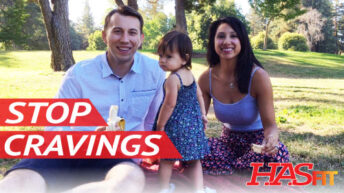
Does sex really count as exercise? Should you set conservative weight loss goals of 5-10 pounds instead of 50? Does adding a little bit of exercise regularly over a long period of time really add up to significant weight loss?
A recent analysis of weight loss research by The New England Journal of Medicine, entitled Myths, Presumptions, and Facts about Obesity, attempts to answer these questions.
Some findings are surprising, some are not, and some common notions about weight loss are yet to be proven or disproven.
So what are the top myths and facts about obesity and weight loss?
Myth #1: If you make small changes in your lifestyle over the long term you will lose weight.
Most of us have learned that if we just cut our calories by 100 calories a day, or increase our exercise a little bit over the long haul, we will lose weight. It’s all about the calories in or the calories out.
Sorry Mr. Newton, your laws of thermodynamics don’t apply in living systems. Biology and metabolism are more complex. If we just go with the math and burn an extra 100 calories a day by walking one mile or consume 100 calories less in 35 days, you would lose one pound (3500 calories = 1 pound).
And over five years you would lose 50 pounds. Yet, in studies they find you would lose only 10 pounds in five years. This occurs because of changes in your metabolism and calorie needs as you lose weight.
Bottom line: Big changes are needed to create big weight loss.
Myth #2: Don’t set big weight loss goals because you will become frustrated and set yourself up for failure.
The fact is that if you set your sights on big weight loss, you have a better chance of losing a significant amount of weight than if you keep your goals “realistic”. If you want to lose 50 pounds, then set that as your goal.
Studies have shown that if you don’t expect to lose a lot of weight, then you won’t! Common sense, it seems, but conventional wisdom is to keep people’s expectations low because weight loss is hard and people will get frustrated if they fail to achieve their goals. The truth is that you will only lose big if you think big.
Bottom line: Set your weight loss goals high. Don’t be realistic. If you set 10 pounds as your goal you might succeed, but if you need to lose 50 pounds you will fail. If you want or need to lose 50 or 100 pounds then name it. Own it. And you will lose it!
Myth #3: Don’t lose weight too fast or you will rebound and gain it all back.
We have been taught that if you go for the quick fix, if you go for the rapid weight loss strategy, in the long run you won’t lose as much as if you go for the slow gradual approach.
Nonsense!
Studies show that if you drop weight quickly you end up with more weight loss in the end. Mark Twain said, “The problem with common sense is that it is not too common.”
Bottom line: Kick-start significant weight loss with dramatic shifts in your diet. Try things like cutting out all sugar, flour, and processed food.
Myth #4: You have to be ready to succeed and go through the “stages of behavior change.”
The science tells us that those who attempt weight loss without feeling ready still succeed. You can act into the feeling instead of waiting for the feeling to act.
Bottom line: Even if you don’t feel inspired, excited, or motivated to start taking care of yourself, just start anyway. You are just as likely to succeed as someone highly motivated.
Myth #5: Sex is good exercise.
Somewhere we all got the idea that sex was good exercise.
A vigorous love-making episode usually lasts about six minutes and burns about 21 calories. If you just sat and watched TV you would burn 14 calories. So find some other way to exercise or study tantric sex and make love for an hour.
Bottom line: So find some other way to exercise or study tantric sex and make love for an hour.






Add comment